Expedition Recovery: Riding Out the Demons of War
A soldier's plan to outride PTSD on a motorcycle
I did the wrong thing 9,085 miles ago. I left late in the day, on little sleep, and on a time crunch. I waved goodbye and headed north from my home to the extreme northern end of the Americas at Deadhorse, Alaska. By a little after midnight I was camping in the Arctic Circle, and all alone with my thoughts. Surprisingly, I had an actual dream, something I’d rarely done since returning from combat in Iraq in December, 2006.
That shakedown run would take me three days from my home in North Pole, Alaska, to the Arctic Ocean at Deadhorse, and back in just a little over a thousand miles. The motorcycle, a 2015 Honda CB500X I modified for off-road with parts from Rally Raid, performed flawlessly, and the trip allowed me time to get used to the solitude of long days in the saddle with my thoughts.
Time alone to think is often my worst enemy. My transition from the U.S. Army Infantry after six years of service appeared to everyone as being smooth and trouble-free. I got surgery to fix my damaged shoulder, went right to work learning a new trade, and finally followed through on my lifelong plan of becoming a municipal police officer. The smooth appearance of my life was a lie.
Like many young men returning from war, I thought I had to be the tough guy from the action movies of my youth. I heard the Veterans Administration talking about things like Traumatic Brain Injury (TBI) and Post Traumatic Stress Disorder (PTSD), and figured that since I felt fine they were clearly wrong. All the while I kept slipping in and out of depression that was further spurred by my father’s suicide in the fall of 2007. All of it built to a head in March of 2013 when I was placed on administrative leave from my police position, then ultimately laid off as a result of medical circumstances due to PTSD.
In the years that followed I fought a running battle with the VA for proper medical and mental health care, and generally coming out on the losing side. Depression began to win and I thought more than once about killing myself. After a near suicidal low last winter, I decided that I needed to fix what was wrong instead of just dealing with the symptoms. That meant moving up the schedule on my plan to ride the Americas by motorcycle after graduation: The plan is to graduate from the University of Alaska, Fairbanks, with an Occupational endorsement in law enforcement operations, an Associates in Construction Management, and a Bachelor’s in Journalism in spring, 2018. But I decided I couldn’t wait that long.
Veteran Riding From Alaska to Argentina to Raise Awareness of PTSD
Time on motorcycles has always been like dreaming for me. I recover so much mentally through the focus and attention I put into riding while the rest of my mind simply mulls over the things too large to process in whole. This is even more important as dreams had become more and more fleeting as time passed.
My decision was made. I was going to take this trip and work on me regardless of what it took. I had lost my dream career and too many friends to PTSD, depression and the like. I would not add myself to that statistic.
Moving forward, I knew there had to be a better way than the VA for vets to get help. A little searching found The Soldiers Project, which provides free mental health counseling to post-9/11 service members, veterans, and their families, without any limit on care and with total anonymity. While The Soldiers Project has only seven chapters and wouldn’t have been able to help me, their mission was exactly in line with my desire to help others. I made contact and started to help get their word out and to try and get some financial support for them as well.
Since that three-day run north, I have crossed two countries from north to south and made it halfway across the United States from west to east before heading south again into Mexico. I have met many old friends, and made new ones. At one point I let my guard down enough to be startled by a waiter; thanks to the presence of a good friend and fellow veteran, I didn’t shut down because of it. I have even entered my first crowded market since Baghdad.
With new friends around me, I’ve found the strength to begin pushing out the fatigued memories of combat with new and healthy replacements, where the swirling mass of people speaking another language no longer sets me on edge, but frees me of fear, anger, and discontent. The ride goes on.
For more information, visit TheSoldiersProject.
More by Zachary Sherman



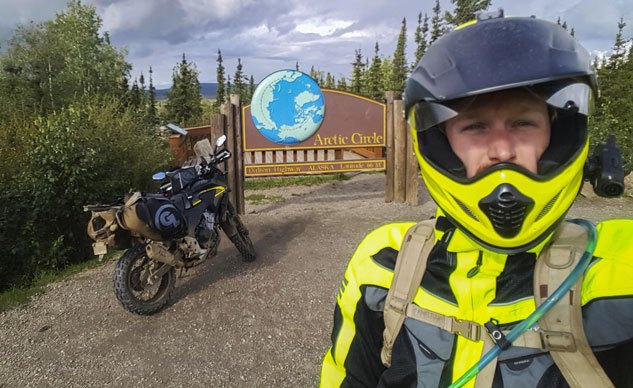
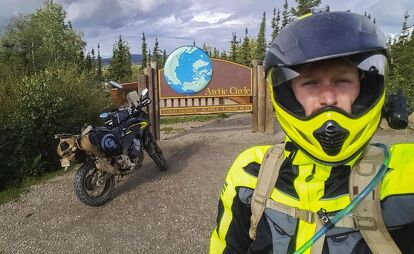












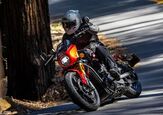
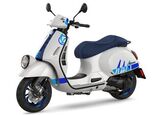

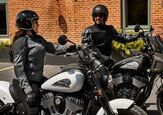
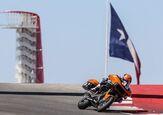
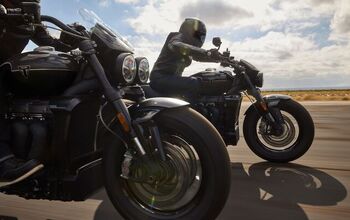


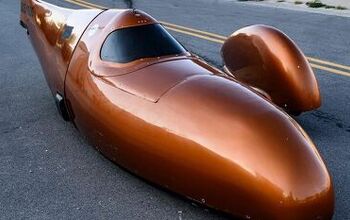


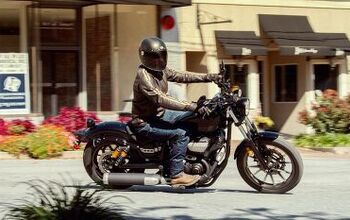




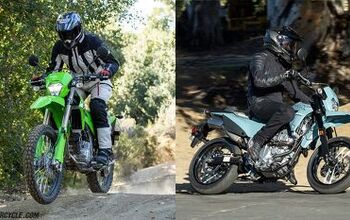
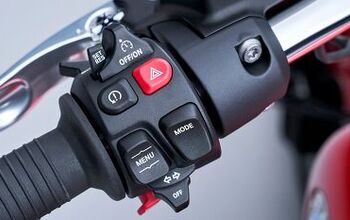




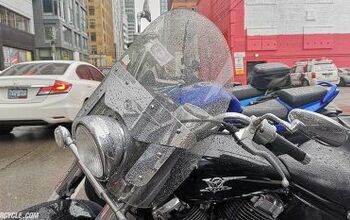
Comments
Join the conversation
As Zachary has shown and proven, the healing power of motorcycling is a fact, well-known to folks like us, not so much for those that still carry a negative viewpoint about motorcycles. While I was not able to serve my country like many in my family had, being able to ride again saved my life, self-image, and confidence. An insidious condition called Ankylosing Spondylitis was in my DNA and started to present itself around the age of 8. Growing up up in a family of accomplished riders and racers going all the way back to the board track days, I started in junior motocross and riding off-road with family in the late 60s. This condition is an abnormality of the collagen gene BLA-H27. My own immune system detected this abnormality and attacked my joint cartilage, but only the collagen component in the joints. By the time I was 14, my entire spine and both hips had completely fused and reduced my range-of-motion in every other joint to about 10% of normal/average. I couldn't even straddle a motorcycle seat and my own dreams of riding and racing were gone. I got around with crutches for 12 years, which atrophied my leg and other muscle groups. I found out about hip replacements in the late 70s and started on my journey to be able to ride again. It took me about 2 years to even find a surgeon who would do this on a 22 year old. I was told it's an old person surgery. At the beginning, I foolishly told physicians my goal, which was why it took me so long to find one to do the joint replacements. I was lectured and vilified, told that it wasn't a worthy goal for a severely disabled man to want to ride a motorcycle, something that makes people disabled. When I finally realized I had to keep my goal to myself, I found a surgeon that would help me. Fast-forward, I endured 6 total hip replacements between 1980 and 1993, back then being 6-8 hour procedures under anesthesia. The physical therapy for those atrophied muscles was pure torture, 3 times a week for years. With those old-school implants, the cement that held them in place would deteriorate and have to be re-done, the reason for so many. In the late 80s, a cement-less implant was designed and I had them "installed" on each side in '89 and '93, no replacements since. I got my first bike in May 1983 and never looked back. The benefits to my overall outlook and how I felt about myself are immeasurable. I wasn't feeling very good about myself before this undertaking and my prognosis for my physical future was bleak; which was negatively affecting my mental state. Thing is, if I had wanted to run a marathon, climb a mountain or play some ball sport, I would've been supported, applauded for my courage, conviction and self-determination. Did it to ride a motorcycle? Idiot, not worthy of any attention. So whether your service to your country has left you with seemingly insurmountable issues, or a disability left you with a poor self-image and little in the way of future prospects, a goal/dream that IS achievable can have profound positive affects on your future. Individuals like Zachary are living proof of the positive that motorcycling can have on their lives, and others lives by sharing their experiences.
Amen brother, well said.